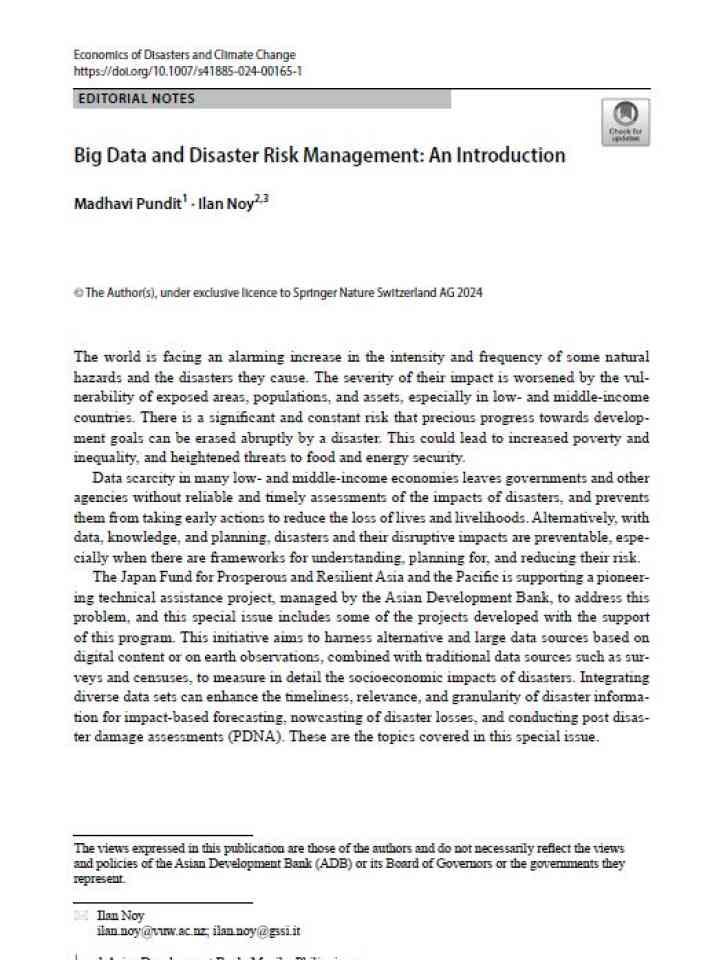Big data and disaster risk management: an introduction
This article underlines how data scarcity in many low- and middle-income economies leaves governments and other agencies without reliable and timely assessments of the impacts of disasters, and prevents them from taking early actions to reduce the loss of lives and livelihoods. Alternatively, with data, knowledge, and planning, disasters and their disruptive impacts are preventable, especially when there are frameworks for understanding, planning for, and reducing their risk.
According to the authors, to effectively leverage big data for disaster risk management, several critical steps must be taken to secure and utilize these resources:
- First, establishing sustained data access between providers, researchers, and users is essential.
- Second, developing technical capacity and skills is vital for advancing big data capabilities.
- Third, integrating new data and tools into existing DRM frameworks is necessary for effective disaster response.
Explore further
